28 Mar 2024
World Happiness Report: Why is Finland #1 and Thailand #58?
Bangkok – A Gallup World Poll survey released on March 20 declared Finland the Happiest Country in the World for the 7th year running. What is the reason for this continuing success? According to Mr Ville Tavio, Minister of Foreign Trade and Development Cooperation, Countries have to make happiness a policy goal and create an “infrastructure of happiness” to support the policy. This goes well beyond just trying to promote economic growth.
Mr Tavio was in Bangkok for events marking the 70th anniversary of Thai-Finnish relations. The Thai Foreign Ministry gave added value to his presence by organising a public lecture on the topic “Why Finland is the Happiest Country in the World.” About 100 people turned up, including Thai academics, social scientists, journalists, diplomats and business leaders. It generated a thought-provoking discussion on comparative socio-economic development models between Thailand and Finland.
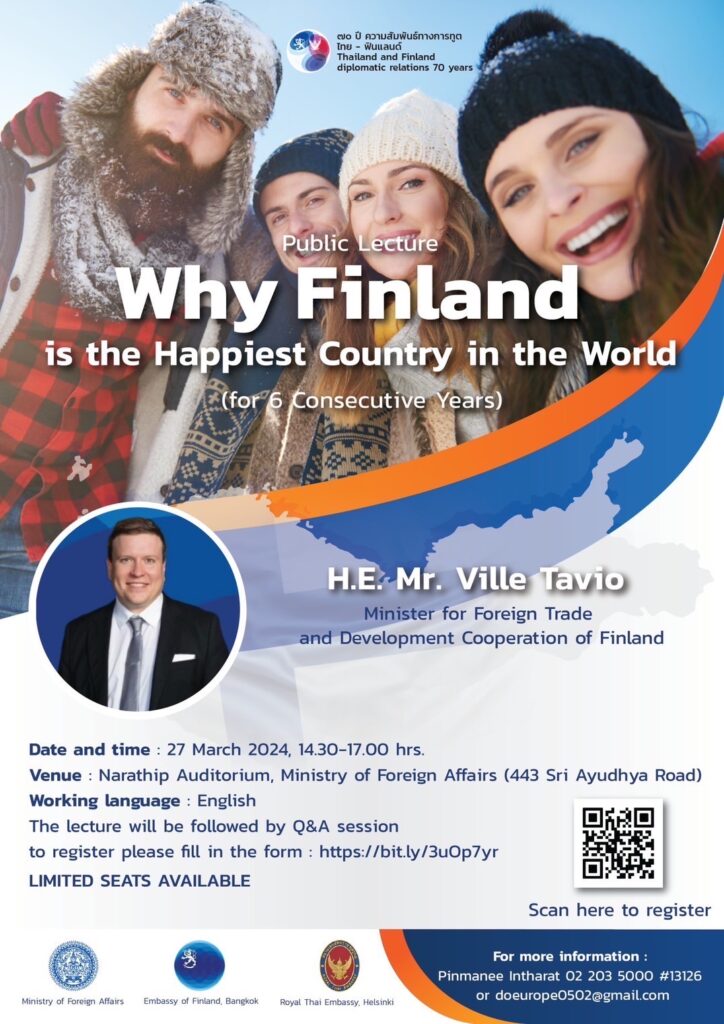

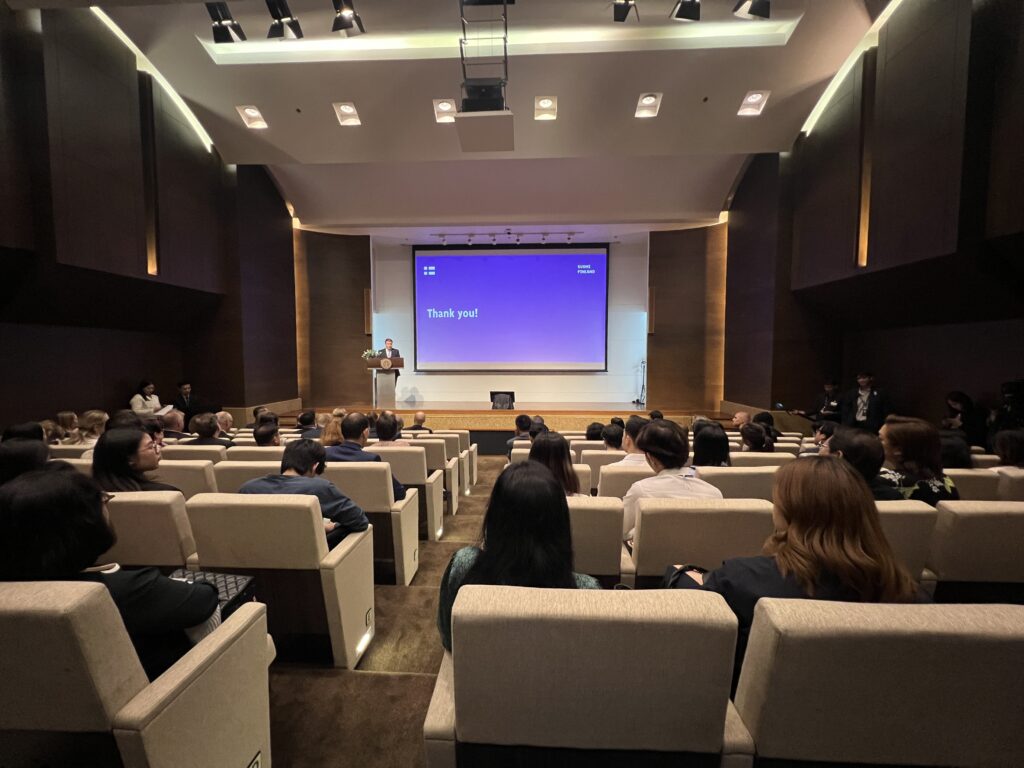
A former exchange student at the Prince of Songkhla university in South Thailand in 2010, Mr Tavio began with a few introductory words in Thai. He recapped the history of Thailand-Finland relations dating back to the June 1954 establishment of diplomatic relations, the launch of Finnair’s Helsinki-Bangkok flights in 1976 and the opening of a full-fledged embassy with ambassadorial representation in 1986. He also noted the number of Finnish visitors to Thailand annually and their love for Thai food, beaches and culture.
Discussing the “Happiness” factor, Mr Tavio stressed that human “well-being” is based on multiple indicators on which Finland scores highly, such as good governance, comprehensive health care, a free press, free and fair elections, low corruption, trust in public sector officials, tuition-free education, a trusting work culture, social welfare schemes for families, especially mothers, good work-life balance and responsible leadership. He stressed that minority communities also face very little discrimination and violence, and there is a high acceptance of sexual minorities.
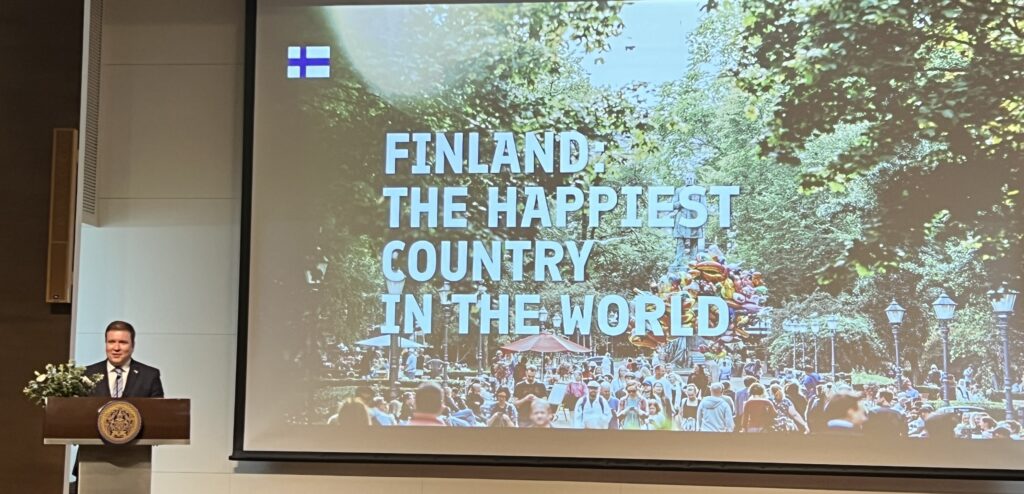
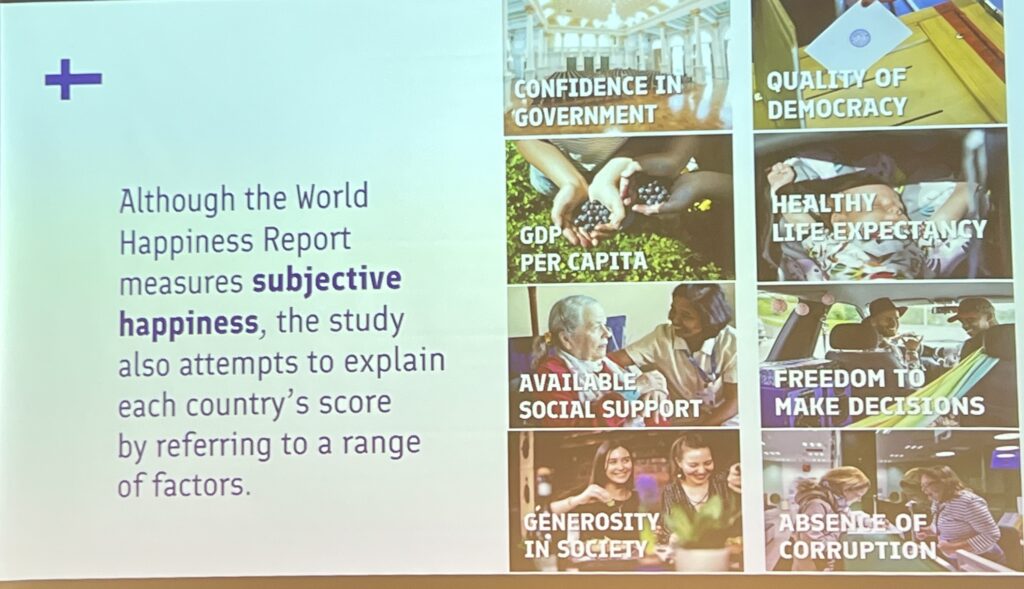
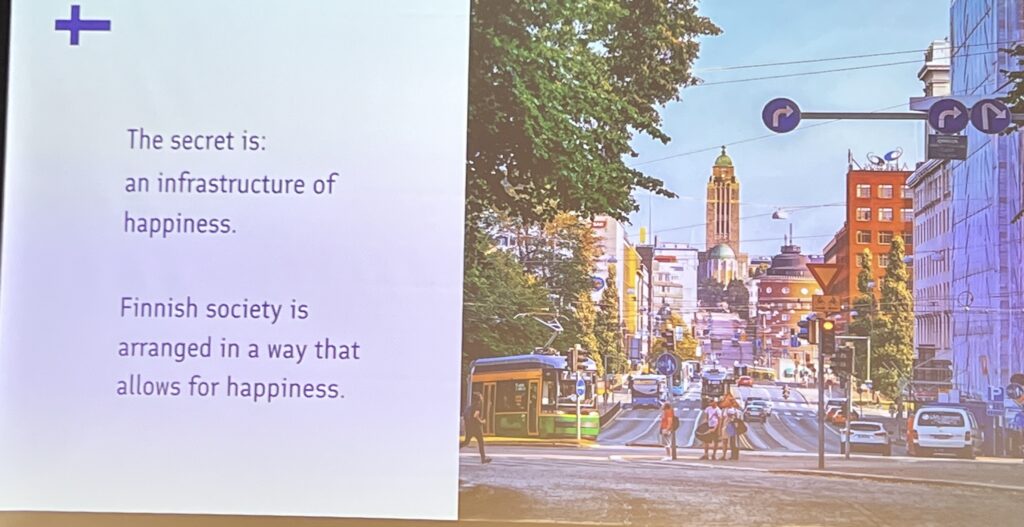
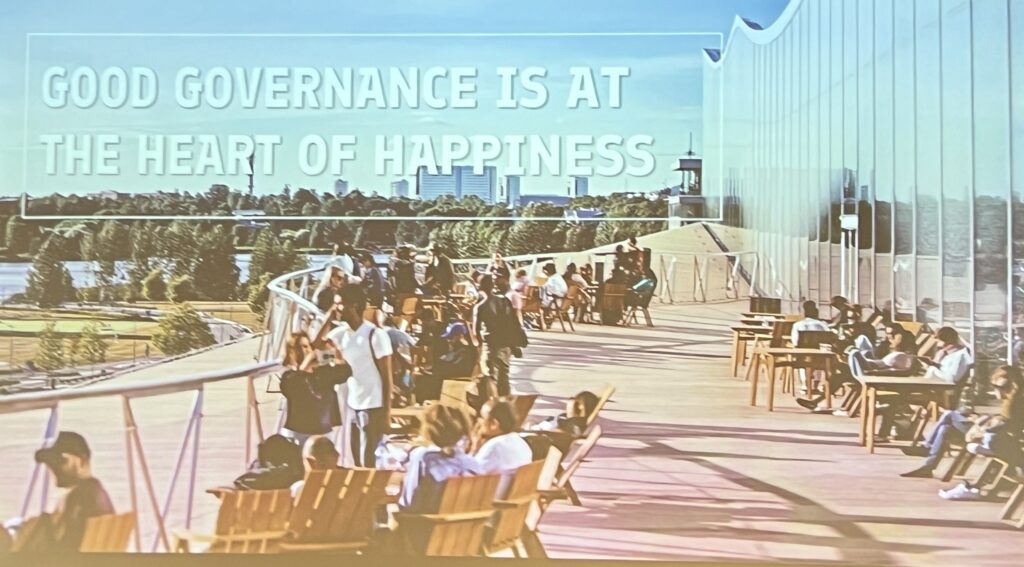
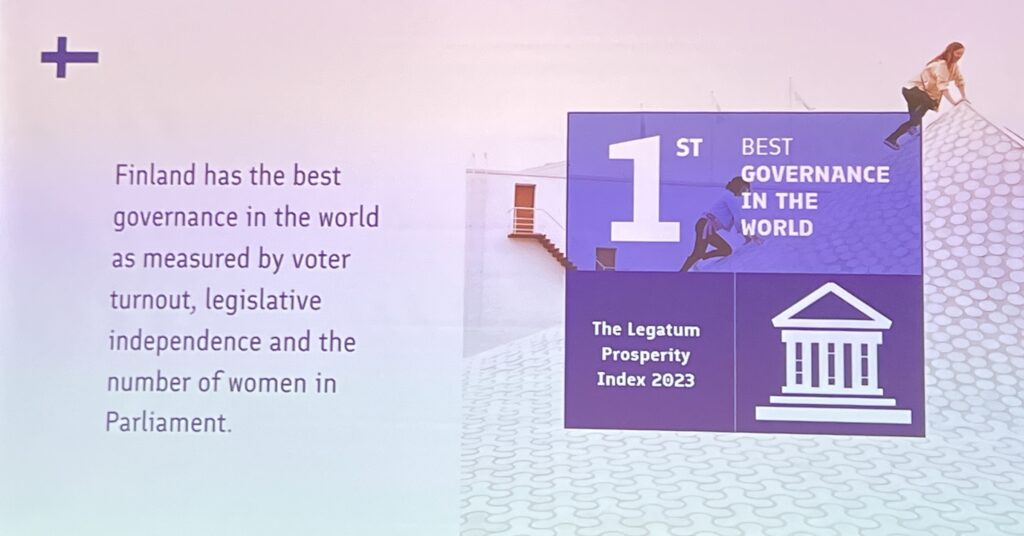

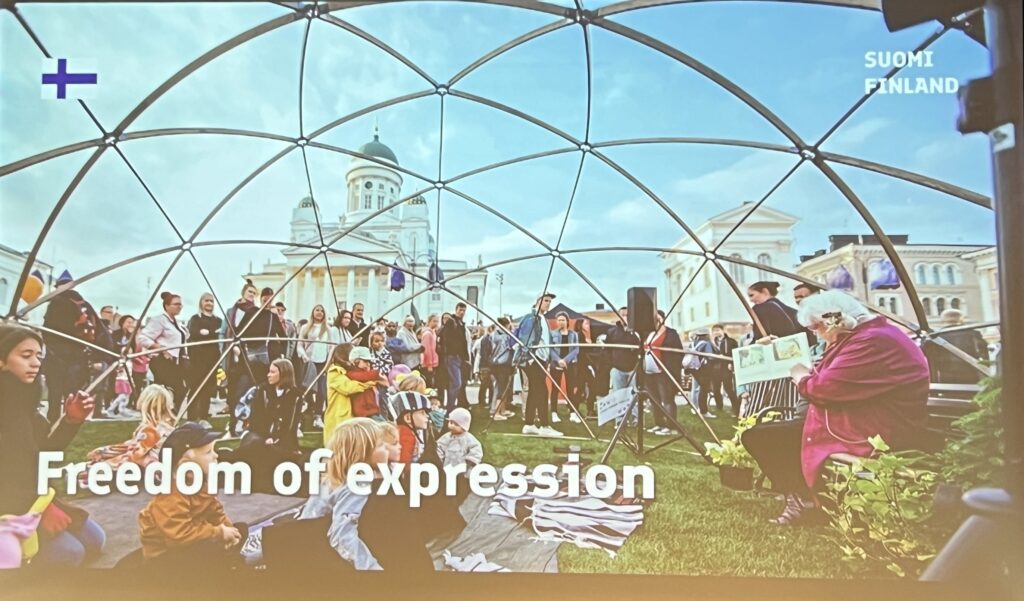
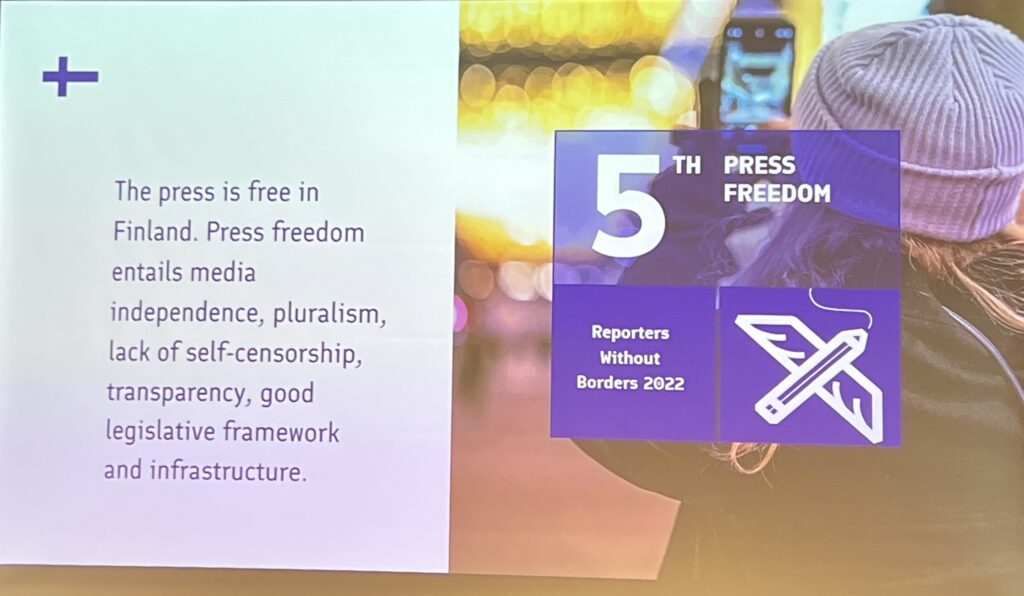

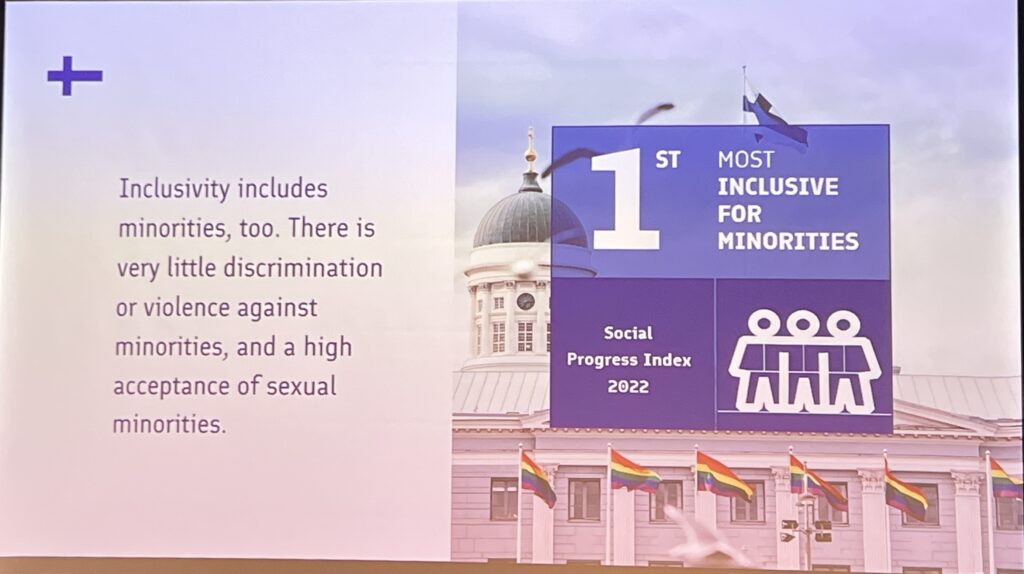
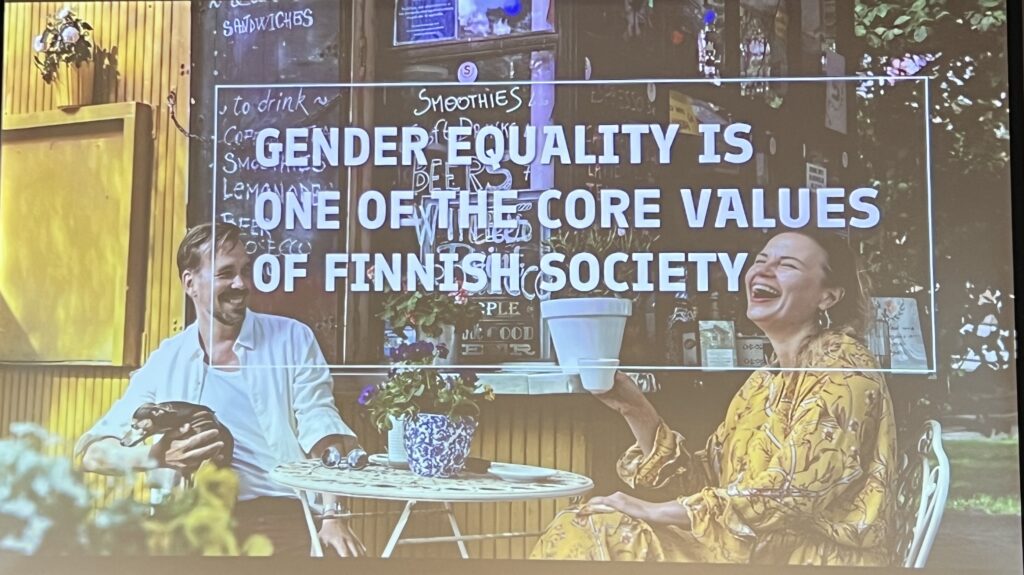
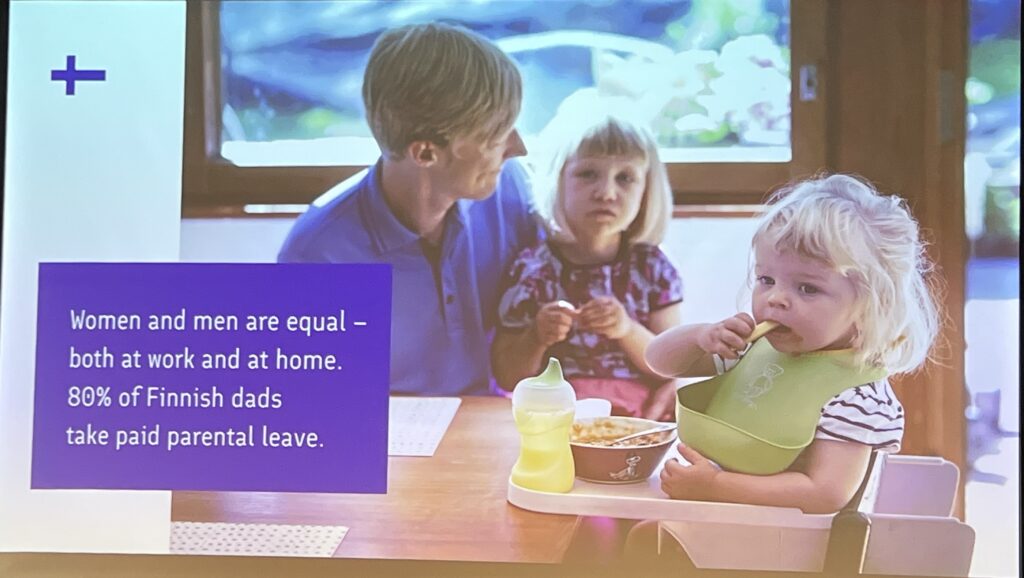
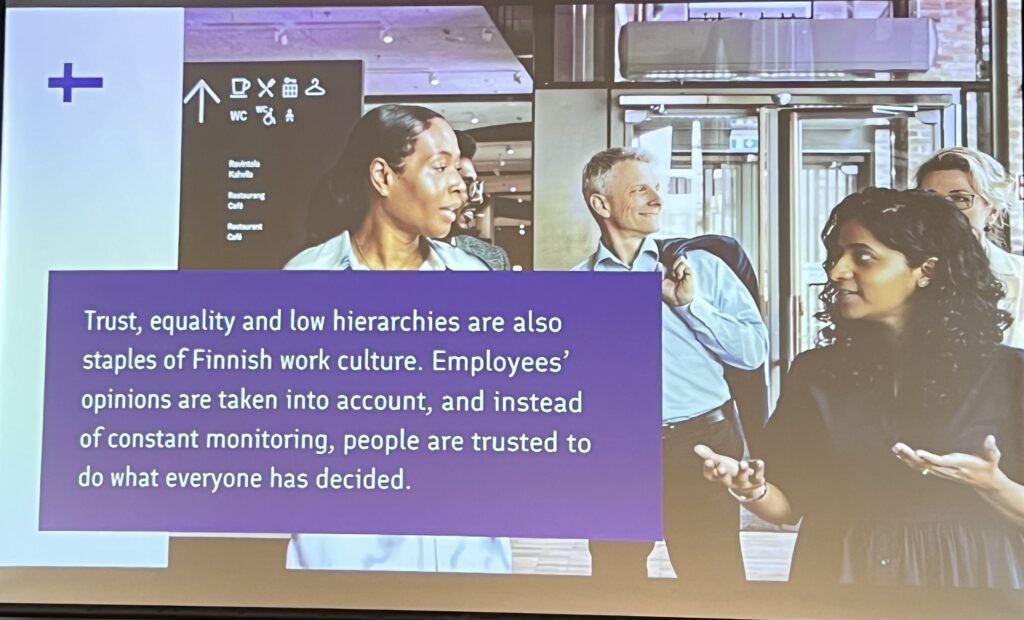

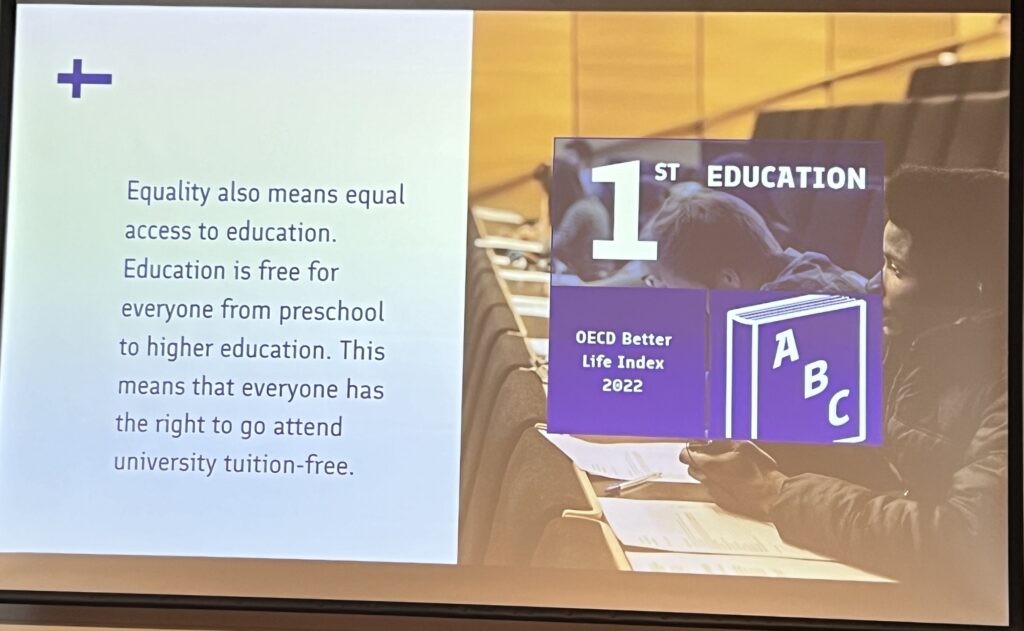

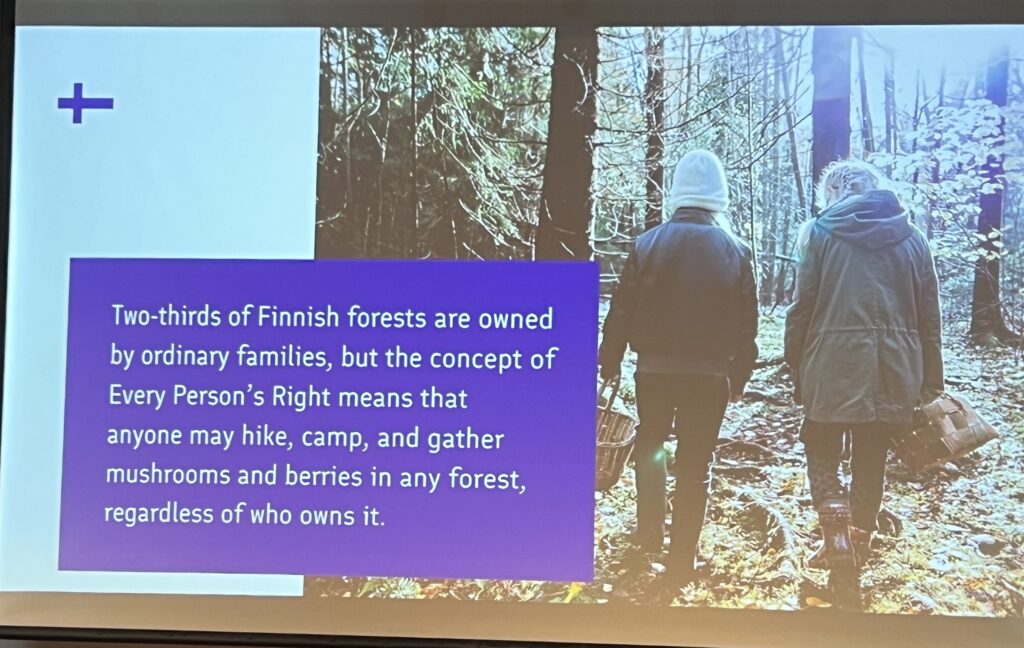

All those indicators are well documented in a number of global reports such as the UNDP’s Human Development Report and the OECD’s Better Life Index. Between the lines, the lecture raised questions about why Finland fares well and Thailand does not.
After all, Thailand is proud of its Buddhist way of life. It was ruled for 70 years by a highly-revered monarch, HM the late King Bhumibhol Adulyadej the Great, who was known as the “Development King” and conceptualised the “Sufficiency Economy Principles” to help Thailand learn the lessons of the 1997 financial crisis and stem the “Greed is Good” gold rush. The kingdom also has other assets such as a unique geographical location, abundant natural resources and a generally easygoing social culture.
In spite of that, Thailand ranks 58 in the 2024 index, lower than Vietnam and the Philippines. Since the 2015 report, when the country rankings were first launched, Finland has risen from #6 to #1 while Thailand has fallen from #34 to #58.
The lecture triggered a thought-provoking Q&A session with a Thai exchange student, a lady who was married to a Finn, a couple of university researchers, and more.
I asked if it was related to Finland’s low population base and extreme weather conditions, especially the harsh winters. Another questioner asked how is it possible to measure “fairness and equality”. One noted the emphasis of the people being offered “freedom of choice.” The lady married to a Finn narrated the story of how she was stopped from plucking a single flower on the roadside because it would deprive other people of enjoying its beauty.
Mr Tavio admitted that Finland was not perfect. He acknowledged a comment about the high suicide rate, saying it was related to alcohol abuse.
How does all this apply to Travel & Tourism?
By far the most important takeaway was the need to restructure and rebalance measurement indicators. Is Travel & Tourism only about creating jobs and income? Is tabulating visitor arrivals and expenditure levels the best measure of “success?” Is it about time to revamp those indicators to measure universal “happiness” from rank-and-file workers to the top public and private sector executives, plus the tourists and visitors themselves.
Thanks to the Thai Foreign Ministry, Mr Tavio’s lecture gave the Thai audience a chance to explore these comparative issues in detail. Finnish embassy diplomats told me they are ready to give lectures on Happiness to other institutions or organisations. Contact the Deputy Chief of Mission Mr Miika Tomi (below) at miika.tomi@gov.fi.

